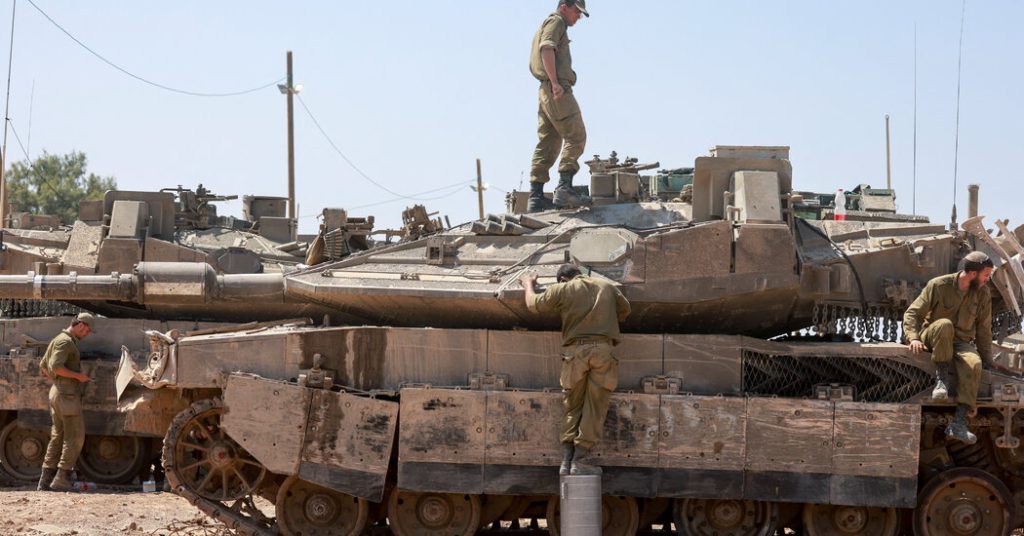Israeli leaders are debating how to respond to an airstrike by Iran, considering options to deter future attacks, appease American allies, and avoid all-out war. Iran’s unprecedented barrage of ballistic missiles and drones broke established rules in their conflict with Israel, prompting a change in Israel’s response calculus. Israeli officials are under pressure from other countries to de-escalate tensions diplomatically and are considering various military responses.
Israel intercepted most of the missiles and drones fired by Iran, which was a retaliation for an Israeli airstrike earlier this month that targeted an Iranian embassy building in Syria. Iran felt compelled to retaliate strongly to maintain credibility with its supporters and deter further attacks. Israel wants to prevent Iran from thinking it can attack Israeli territory in response to actions in a third country, while avoiding a major conflict with Iran as it engages in other conflicts.
Israeli leaders are considering different response options, including aggressive strikes on Iranian targets in different countries, symbolic strikes inside Iran, cyberattacks on Iran’s infrastructure, and small attacks within Iran carried out by the Mossad. Other options include doing nothing to leverage international support or adopting a more diplomatic approach through the United Nations Security Council. The war cabinet has not yet decided on a response after multiple days of deliberation.
American officials have advised Israel not to retaliate for the Iranian strike, suggesting that the successful defense against the attack could be a victory. However, Israeli officials believe they must respond visibly to a direct strike from Iran. The United States is supporting diplomatic efforts to pressure Iran and may impose tougher sanctions on the country. Several countries are urging Iran to avoid further escalation, and the European Union is considering expanding sanctions against Iran’s weapons program in response to the recent attack on Israel.
The debate within Israel’s war cabinet is marked by old rivalries and distrust among its members, who have yet to reach a consensus on how to respond to Iran’s airstrike. Despite American efforts to dissuade retaliation, Israeli leaders feel compelled to respond visibly to the attack. The United States has pledged to defend Israel against further Iranian aggression, and is looking at ways to disrupt Iran’s activities, including cutting off military components used in weapons production.
As Israel faces pressure to avoid escalating conflict with Iran, other countries are also pushing for de-escalation. The European Union is considering sanctions against Iran’s weapons program in response to the recent attack, and the situation in the Middle East is described as being on the edge of a deep precipice. Ultimately, Israeli leaders must weigh the risks and benefits of different response options in order to navigate the complex geopolitics of the region.


